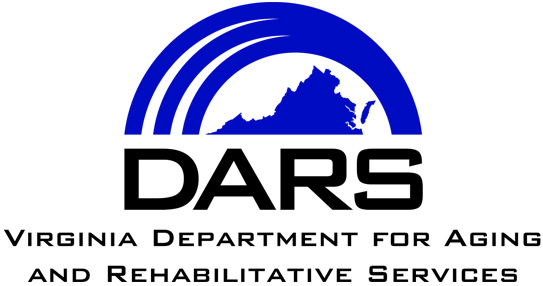Chapter 8.20 Contents:[REVISED: 9/15/22] - This policy shall not apply to Cost Of Attendance (COA) for school training services subject to the RS-25. If the RS-25 applies, see Chapter 7, SCHOOL, Policy 1.
- Definition.
Transportation services means (per 2016 Federal Regulation 34 CFR § 361.5(c)(56)) travel (mileage or fares) and travel-related expenses (such as tolls, parking rates, etc. but not traffic or parking violation fines) that are necessary to enable the client (including applicants) to participate in a vocational rehabilitation service.
- Not a stand-alone service.
Transportation is not a stand-alone service. The counselor may (per 2016 Federal Regulation 34 CFR § 361.5(c)(56)) authorize the cost of transportation to another vocational rehabilitation service, beginning with the Intake meeting. Once the client has achieved satisfactory stable employment for at least 90 days, the case shall not (per RSA Manual Chapter 2020.05 issued March 25, 1992) be kept open solely to provide transportation services. Transportation may (per RSA Manual Chapter 2020.5 issued March 25, 1992) be provided as a Post Employment Service only when the counselor documents it is needed to access another post employment service. The counselor shall not authorize normal transportation costs the client would incur if not participating in the VR program.
- Public transportation.
DRS shall (per State Regulation 22 VAC 30-20-120) pay the most economical rate for travel and travel-related expenses. The counselor must always consider local public transportation (such as city bus, Metro, etc.) before other options. For public transportation, the maximum allowed is the actual cost, subject to comparable benefits policy and consumer financial participation policy.
- Private transportation.
When the counselor can document that public transportation is not available or accessible, or when the client cannot travel by public transportation because of disability, the most economical type of private transportation that meets client transportation needs shall be used. If the lowest-cost private transportation option is not selected, the counselor must justify in the case file why the lower cost options do not meet client transportation needs. Private transportation includes personal vehicle, taxi, private van services, hired driver, and other contractual arrangements. For private transportation except private vehicle, the maximum allowed is the actual cost, subject to comparable benefits policy and consumer financial participation policy. For private vehicle, travel (mileage) expenses may be paid at the consumer mileage reimbursement rate.
- Consumer reimbursement rate.
The consumer mileage reimbursement rate is the current mileage rate approved by the Commonwealth of Virginia. Please refer to the Commonwealth's Accounting Policies and Procedures (CAPP) Manual.
- Transportation for permanent relocation.
In conjunction with permanent out-of-town relocation for a written job offer (see Chapter 8.10, MAINTENANCE, Policy 1), the counselor may authorize transportation-related relocation costs to include, but not limited to: travel mileage, professional packing services for an individual with mobility limitations, moving van rental or professional movers, etc. For assistance with other relocation costs, see Maintenance policy.
- Transportation for non-clients.
The counselor may authorize transportation for the custodial parent or legal guardian who will accompany the client to the vocational rehabilitation service.
- Transportation for PAS attendant.
The counselor may (per 2016 Federal Regulation 34 CFR § 361.5(c)(56)) authorize transportation for the client PAS attendant or aide if the services of that person are necessary to enable the client to travel to the vocational rehabilitation service.
- Comparable benefits.
Transportation services shall (per 2016 Federal Regulation 34 CFR § 361.53) be subject to comparable benefits policy. See Chapter 14.2, COMPARABLE, Policy 1.
- Consumer financial participation.
Transportation services, except when needed to access a VR assessment service, shall (per 2016 Federal Regulation 34 CFR § 361.54) be subject to consumer financial participation (see Chapter 14.3, FINANCIAL, Policy 1).
- Encumbering funds.
Purchased services shall be subject to DRS established purchasing policies and procedures. For encumbering funds, see Chapter 14.1, PURCHASING, Policy 1. See DARS Services Reference Manual, Other Services, "Transportation" category. Before Application status in AWARE, the authorization screen is not available and the administrative small purchase charge card (Admin SPCC) is used instead.
- Advances.
The counselor may authorize a fuel card or books of bus tickets, etc. in advance of travel but shall not forward money in advance of travel.
- For Driver Education and Learner permit or Driver License, see Chapter 8.21, VEHICLE, Policy 1.
- For repair of client vehicle, see Chapter 8.21, VEHICLE, Policy 3.
- For vehicle purchase for a client, see Chapter 8.21, VEHICLE, Policy 4.
- For routine upkeep (such as state inspections, decals, oil changes and other routine maintenance, title and tags, personal property tax, vehicle registration fees, etc.) for a client vehicle, see Chapter 8.21, VEHICLE, Policy 3.
- For vehicle insurance or uninsured motorist fees for a client vehicle, see Chapter 8.21, VEHICLE, Policy 2.
- For vehicle modification, see Chapter 8.21, VEHICLE, Policy 5.
|

